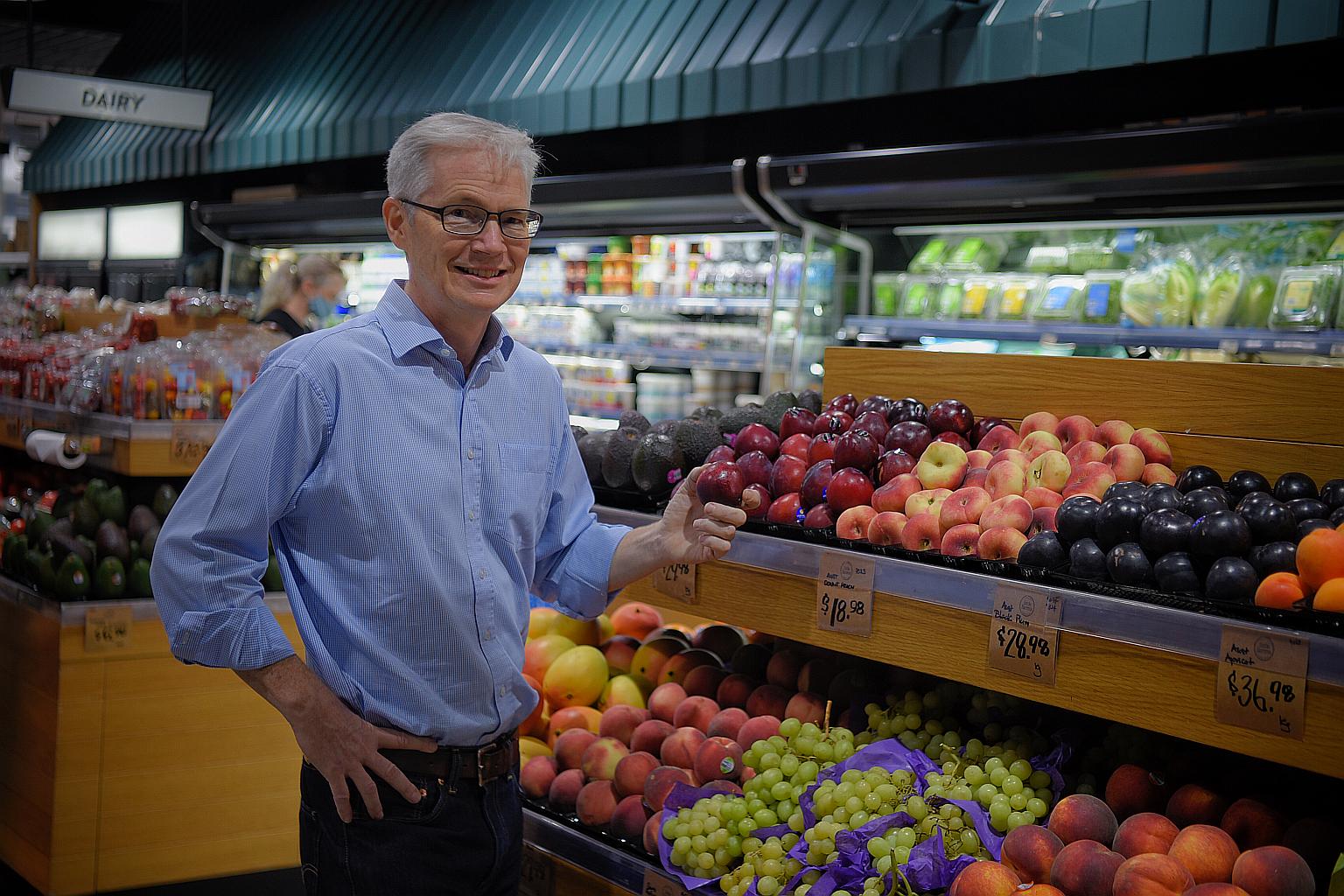Gourmet grocer Little Farms gains from growing health consciousness amid pandemic
The Covid-19 pandemic has taken a toll on many businesses but some Singapore firms continue to survive - and even thrive. In the third of a four-part series, The Straits Times looks at local enterprises that have seized opportunities to grow amid the economic downturn.
Sign up now: Get ST's newsletters delivered to your inbox

Joe Stevens, chief executive of gourmet grocery chain Little Farms.
ST PHOTO: MARK CHEONG
SINGAPORE - Consumers are paying more attention to what they eat, especially now as the pandemic shines a spotlight on health.
Their preference for natural and organic food, coupled with a shift towards online shopping, has caused digital sales to surge at homegrown gourmet grocery chain Little Farms, said chief executive Joe Stevens.
"People who might have been on the sidelines of this topic of healthy eating got into the game," said Mr Stevens.
"The shutdown of the restaurants during the circuit breaker also gave people fewer choices of what to eat, so we had a serious spike in online orders and people shopped more heavily here."
Takings at supermarkets and hypermarkets rose 22.6 per cent in November compared with the same month in 2019, noted Department of Statistics data last month (January).
Before the pandemic, Little Farms made only a handful of deliveries every day and was planning to gradually build up its e-commerce platform.
"We saw it as an option in the future. With Covid, the future arrived overnight and there was an enormous demand for everything," added Mr Stevens.
The grocery chain quickly expanded its capacity for online sales reduce crowds in stores.
It set up an e-commerce fulfilment centre in Valley Point shopping centre over just one weekend. It also partnered a distribution company with refrigerated trucks that could deliver fresh produce.
During the circuit breaker period, the volume of online orders rose by 30 times compared with pre-pandemic levels. Such orders are now 10 times as much as before.
""Some of this change is permanent. There are a lot of people who just wouldn't have thought of buying their fresh produce online, but now they realise they can," said Mr Stevens, who declined to disclose the profits for the year.
Besides existing customers who shifted online, the grocer has also acquired new shoppers who used to frequent other supermarkets.
Some items were out of stock at these customers' usual haunts due to supply chain issues. They therefore turned to Little Farms and continued to shop there even after things stabilised as they liked the products, said Mr Stevens.
Little Farms had expanded its Valley Point branch just before the pandemic broke out, setting up a fresh butcher counter and widening its deli, wine and plant-based products range.
In January last year, it also opened a cafe at the branch to serve dishes made with some of the store's fresh produce.
The grocer will set up two new branches this year, including a 6,000 sq ft store and bistro in Katong that will be its largest when it opens in March.
Little Farms hired 20 more staff last year, mainly in e-commerce fulfilment and safe management roles. It now has 120 workers and plans to grow its headcount by another 25 for the Katong branch.
The firm, which was established in 2016 and now has four branches, imports products mainly from Australia, Europe and the United States.
But it is also working with local urban farms like Sustenir Agriculture, Artisan Green and Archisen to improve its domestic supply.
Mr Stevens, who took up Little Farms' reins in 2018, said that although the grocer managed to keep most of its supply chains intact amid the pandemic, it is also trying to be more resourceful.
"As a small grocer, we don't have many alternative ways to bring products. We're working much harder to develop relationships with local growers, which also allows us to manage freight costs," said Mr Stevens, who has lived in Singapore for 16 years and previously headed Standard Chartered's former private equity arm.
Other plans in the pipeline at Little Farms include a consolidation of its various loyalty programmes and a more contextual online shopping experience for customers.
Mr Stevens said: "Our goal is to let people know they can have both a healthy and delicious meal, and that they do not need to choose between the two. We hope we can be their first choice for these meals."


